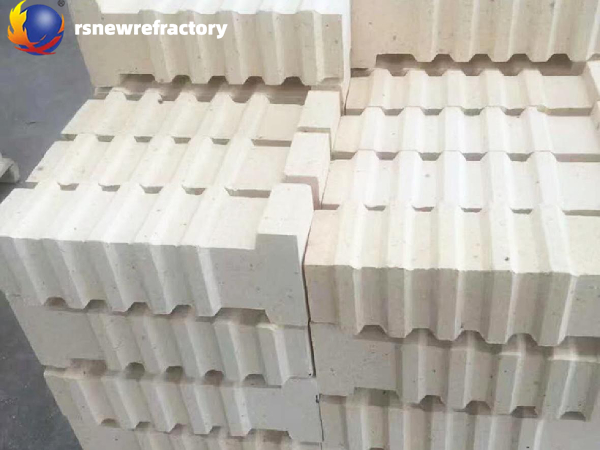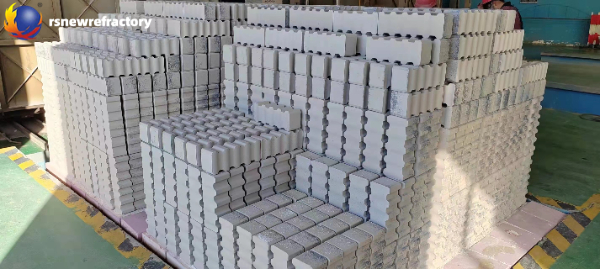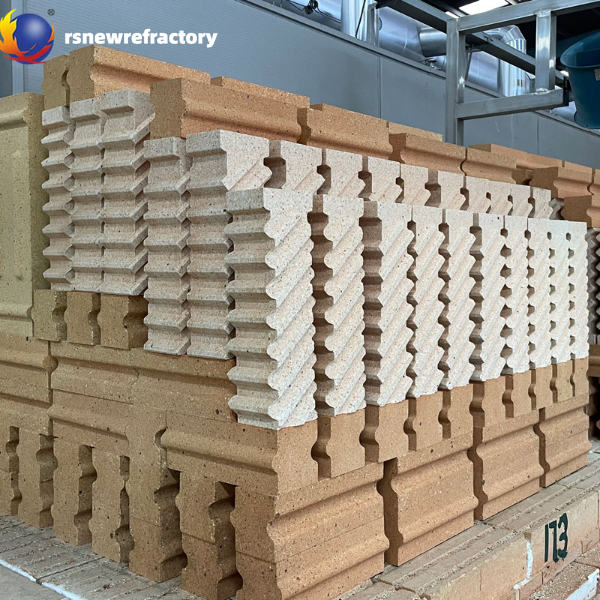Classification of anchor refractory bricks
Anchor refractory bricks are a special material widely used in high-temperature industrial furnaces to support and fix the refractory lining structure. Due to its unique design, anchor bricks can effectively improve the strength and stability of the refractory lining and extend the service life of the equipment. This article will introduce in detail the classification of refractory anchor bricks and their specific applications in industry.

Classification of anchor refractory bricks
High alumina anchor brick

Raw Materials: High alumina bauxite is the main raw material, and the alumina content is usually above 48%.
Features: It has good high-temperature resistance and corrosion resistance, and is widely used in the steel industry and cement kilns.
Taupānga: Used in areas where high strength and wear resistance are required in high-temperature kilns.
Clay anchor bricks
Raw materials: Refractory clay is the main raw material, with relatively low alumina content.
Features: High-cost performance, suitable for medium-temperature kilns or low-heat load areas.
Taupānga: Applied to lining fixation of small and medium-sized kilns.
Corundum anchor brick
Raw materials: fused corundum or sintered corundum as the main raw materials, with an alumina content of more than 90%.
Features: extremely strong corrosion resistance and wear resistance, excellent temperature resistance.
Taupānga: used in high-temperature industrial kilns that require extremely high-temperature resistance and corrosion resistance.

Silicon carbide anchor brick
Raw materials: Silicon carbide is the main component, usually with some binder added.
Features: strong wear resistance, excellent thermal conductivity, tino pai te parenga waiariki.
Taupānga: Suitable for cooling areas of high-temperature kilns and areas that require rapid heat dissipation.
Application fields of refractory anchor bricks
Ahumahi maitai
Applied to fix the refractory lining of blast furnaces, oumu arc hiko, and converters, and withstand the erosion of high-temperature molten metal and slag.
Cement industry
Used in cement rotary kilns, decomposition furnaces,s, and other parts to fix refractory castables and refractory bricks.
ahumahi karaihe
Used in the heat storage chamber and kiln roof of glass kilns to support the kiln structure and resist the erosion of high-temperature gases.
Petrochemical industry
Used in high-temperature devices such as cracking furnaces and gasification furnaces to fix refractory castables and insulation layers.
Other fields
Including high-temperature kiln equipment such as ceramic kilns, waste incinerators, and aluminum industrial furnaces.

 Rongsheng Refractory Factory
Rongsheng Refractory Factory
WeChat
Matawai te Waehere QR me te wechat